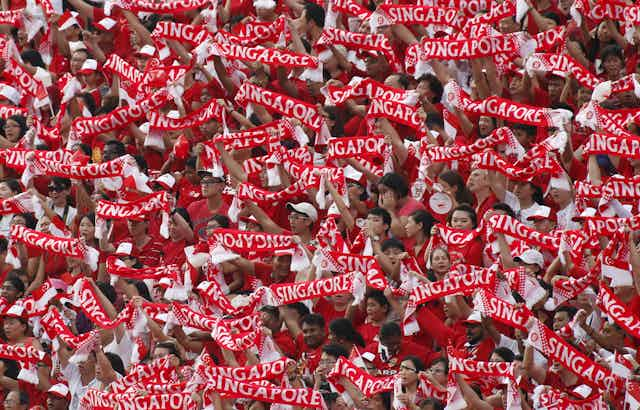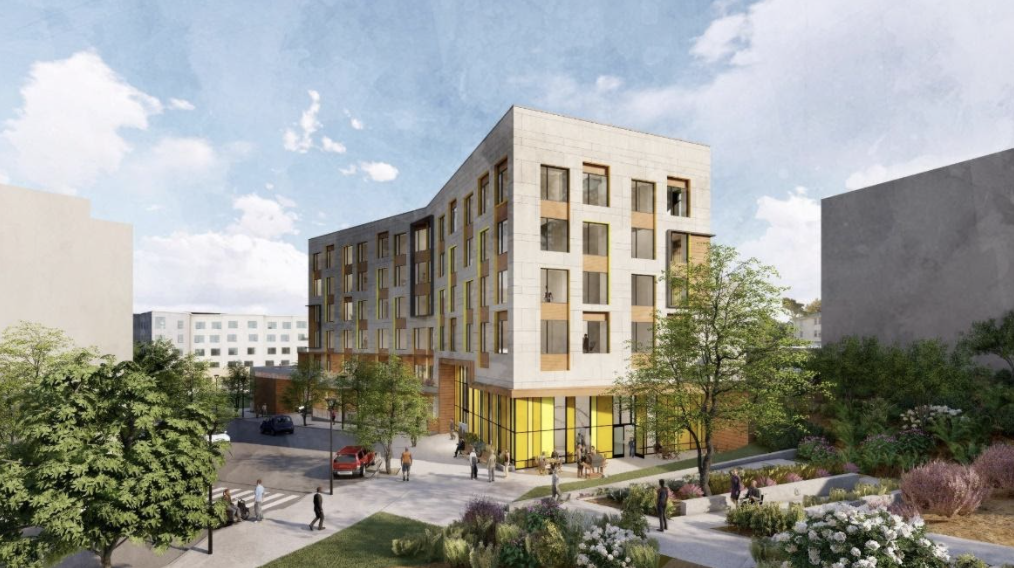Will Singapore's Ruling Party Maintain Its Monopoly?

Table of Contents
The PAP's Historical Dominance and its Strategies
The PAP's remarkable success stems from a confluence of factors, primarily its effective governance and sophisticated political strategies.
Effective Governance and Economic Success
The PAP's long tenure is inextricably linked to its perceived success in transforming Singapore from a small, resource-scarce island nation into a global economic powerhouse. This success is often cited as a key reason for its continued electoral dominance.
- Rapid Economic Growth: Singapore's impressive economic growth, averaging over 7% annually for much of its post-independence history, has significantly improved living standards and created a sense of national pride. This growth is attributed to policies that prioritized education, foreign investment, and technological innovation. [Source: World Bank Data]
- Strong Infrastructure Development: Massive investments in infrastructure, including world-class ports, airports, and public transportation, have created a highly efficient and modern urban environment, enhancing Singapore's global competitiveness. [Source: Singapore Economic Development Board]
- Effective Social Programs: The PAP government has implemented extensive social safety nets, including affordable housing, healthcare, and education, mitigating social inequalities and fostering a sense of social security. [Source: Ministry of Social and Family Development]
- Efficient Bureaucracy: Singapore's famously efficient bureaucracy, known for its low levels of corruption and streamlined processes, is often highlighted as a key factor in its economic success and contributes to a sense of order and stability. [Source: Transparency International Corruption Perception Index]
These achievements have cultivated a strong public perception of competence and stability, which is directly reflected in electoral outcomes, solidifying the PAP’s position within Singapore's political landscape.
Sophisticated Electoral Strategies and Media Management
Beyond effective governance, the PAP has employed sophisticated electoral strategies and media management to maintain its grip on power.
- Control of the Media Narrative: The state-controlled media plays a crucial role in shaping public discourse, often presenting a favourable narrative of the PAP's achievements and downplaying criticisms.
- Use of Pro-Government Voices: The PAP leverages a network of pro-government commentators and think tanks to influence public opinion and counter dissenting voices.
- Targeted Campaigns: The PAP employs highly targeted campaign strategies, focusing on specific demographics and addressing their concerns.
- Effective Ground Organization: The PAP boasts a highly effective ground organization that reaches out to voters at the grassroots level, building strong relationships and mobilizing support.
These strategies, while effective, have also drawn criticism regarding the lack of media plurality and the limitations placed on the opposition. The balance between effective governance and potentially restrictive political practices remains a key area of debate surrounding Singapore's ruling party monopoly.
Emerging Challenges to the PAP's Monopoly
Despite its historical dominance, the PAP faces increasingly significant challenges to its political monopoly.
Rising Younger Generations with Different Political Views
A growing disconnect is emerging between younger Singaporeans and the PAP's traditionally conservative policies.
- Increased Engagement with Social Media and Alternative News Sources: Young Singaporeans are increasingly engaging with social media and alternative news sources, exposing them to a wider range of perspectives and challenging the dominant media narrative.
- Rising Concerns about Inequality: Concerns about income inequality and social mobility are gaining traction among younger generations, leading to calls for greater social justice and economic redistribution.
- Greater Emphasis on Individual Freedoms: Younger Singaporeans are increasingly demanding greater individual freedoms and political participation, challenging the PAP's emphasis on social harmony and national unity.
This shift in political attitudes among younger demographics presents a potential long-term challenge to the PAP's continued dominance, necessitating adjustments to its political strategy and policy platforms.
Growing Concerns about Political Transparency and Accountability
Criticisms regarding political transparency and accountability persist, potentially impacting the PAP's standing.
- Debates around Freedom of Speech: Ongoing debates about freedom of speech and the limitations placed on political dissent remain a point of contention, contributing to dissatisfaction among some segments of the population.
- Concerns over the Lack of Checks and Balances: Concerns about the concentration of power within the PAP and the perceived lack of sufficient checks and balances on the government's actions continue to fuel discussions about governance reform.
- Discussions Surrounding the Power of the Ruling Party: The extent of the PAP's power and influence continues to be a subject of debate, particularly regarding its control over state institutions and media.
These concerns, amplified by social media, may erode public trust in government institutions if not effectively addressed.
The Rise of Opposition Parties and the Potential for Increased Competition
While the opposition parties continue to face significant challenges, there's potential for increased competition in the future.
- Challenges Faced by Opposition Parties: Opposition parties face significant challenges, including fundraising difficulties, limited media access, and the PAP's well-established ground game.
- Changes in Election Laws: Changes in election laws can impact the playing field, potentially creating opportunities for the opposition to gain a stronger foothold.
- Strategies Adopted by the Opposition: The opposition parties are constantly refining their strategies to better engage with voters and overcome the structural disadvantages they face.
While the opposition's path to significant electoral gains remains challenging, their growing sophistication and the shifting political landscape suggest increased competition in the years to come.
Conclusion
The PAP's long-standing dominance in Singaporean politics is undeniable, built upon a foundation of economic success, effective governance, and sophisticated political strategies. However, emerging challenges, including evolving generational attitudes, concerns about political transparency, and a more active opposition, threaten this seemingly unshakeable political monopoly. The future of Singapore's ruling party monopoly hinges on the PAP's ability to adapt, respond to societal changes, and engage constructively with the concerns of a diverse and increasingly engaged population. Continue to follow developments closely to stay informed about the evolution of Singapore's political dynamics and the ongoing debate surrounding Singapore's ruling party monopoly.

Featured Posts
-
 The Special Little Bag Functionality And Style Combined
May 04, 2025
The Special Little Bag Functionality And Style Combined
May 04, 2025 -
 Calgary Flames Wolf Playoff Predictions And Calder Trophy Potential Nhl Q And A
May 04, 2025
Calgary Flames Wolf Playoff Predictions And Calder Trophy Potential Nhl Q And A
May 04, 2025 -
 Pupils Celebrate Groundbreaking Of New Tomatin Affordable Housing In Strathdearn
May 04, 2025
Pupils Celebrate Groundbreaking Of New Tomatin Affordable Housing In Strathdearn
May 04, 2025 -
 Royal Family Feud Harrys Security Concerns And Charles Response
May 04, 2025
Royal Family Feud Harrys Security Concerns And Charles Response
May 04, 2025 -
 From Scatological Documents To Podcast Success The Power Of Ai
May 04, 2025
From Scatological Documents To Podcast Success The Power Of Ai
May 04, 2025
Latest Posts
-
 Blake Lively And Anna Kendricks Relationship On The Set Of Another Simple Favor The Director Speaks Out
May 04, 2025
Blake Lively And Anna Kendricks Relationship On The Set Of Another Simple Favor The Director Speaks Out
May 04, 2025 -
 Another Simple Favor Director Responds To Alleged Blake Lively And Anna Kendrick Feud
May 04, 2025
Another Simple Favor Director Responds To Alleged Blake Lively And Anna Kendrick Feud
May 04, 2025 -
 The Unusual Start Of Anna Kendrick And Rebel Wilsons Friendship A Pitch Perfect Story
May 04, 2025
The Unusual Start Of Anna Kendrick And Rebel Wilsons Friendship A Pitch Perfect Story
May 04, 2025 -
 Blake Lively And Anna Kendrick Timeline Of Their Public Appearances And Interactions
May 04, 2025
Blake Lively And Anna Kendrick Timeline Of Their Public Appearances And Interactions
May 04, 2025 -
 Anna Kendrick And Rebel Wilsons Pitch Perfect Bond How It All Began
May 04, 2025
Anna Kendrick And Rebel Wilsons Pitch Perfect Bond How It All Began
May 04, 2025
